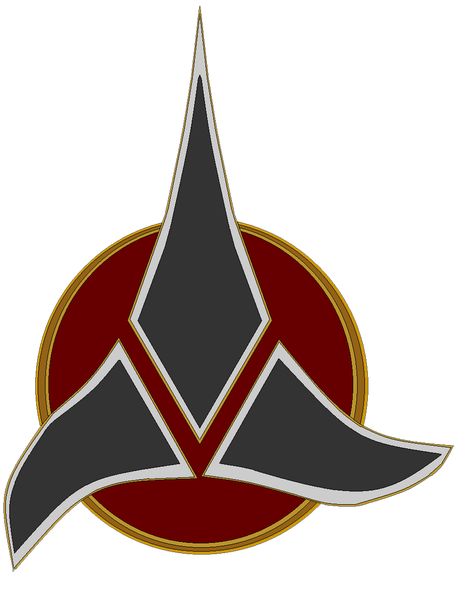
Klingon Empire
General Info

| Faction Name | Klingon Empire |
|---|
Overview
The Klingons are a humanoid species characterized by a prominent cranial crest and a highly developed physique well suited for combat. Imperial society places great emphasis on combat readiness, personal bravery, and family honor. Every Klingon wants to die a glorious death in battle to join their honorable ancestors in the afterlife of the Sto-vo-kor, warriors who lived by a code of honor.
This militaristic society greatly influences the Empire's technology and military prowess, making them formidable opponents to any power that questions the Empire's doctrines or territorial autonomy. The Empire boasts a vast fleet of powerful warships, such as the legendary Predator and the Vor'cha-class battlecruiser.
Despite their brutal and aggressive behavior, Klingons are deeply spiritual. They have many rituals, ceremonies and rites related to their belief system. The food culture of the Empire is equally unique, as the Klingon diet includes gagh and blood wines.
The Empire has often faced political turmoil and power changes, but its resilience against obstacles and dedication to preserving its unique heritage propel its existence in the vast cosmos. As the battle cry of Qapla'-Success rings through the corridors of every spaceship and in the heart of every soldier, they continue their journey to honor and glory.
History
Dominating space far from its homeworld, the Empire expanded through coldly logical and strategic conquests, though it often engaged in brutal warfare with neighboring cultures, including the United Federation of Planets and the Romulan Star Empire. Even within its own borders, there were constant conflicts between powerful houses. This internal struggle for power sometimes weakened the empire and sometimes renewed its strength.
In the late 24th century, the Empire faced many difficulties, including a civil war caused by a power struggle following the death of Chancellor K'mpec. But the empire proved resilient and survived. Despite its many colonies and conquered territories, the Klingon Empire has always been centered on the homeworld of Qo'noS. By the 26th century, the Klingon Empire had become an integral part of the expanded Federation, marking another shift in its warlike history. Still, the ideals of honor, strength, and endurance remained central to Klingon culture.
Over the centuries, the Empire has demonstrated a tenacity and strength that secures its place in galactic affairs. It does not only represent military forces or governing bodies; it means culture, way of life and, for those who understand its complex hierarchies and rituals, family. Regardless of the future of the Empire, the legacy of the Klingons is undoubtedly one of lasting resilience and a testament to their indomitable spirit.
Notable Members
Member #
1
Gorkon
2
Kahless the Unforgettable
3
Chang
4
Kang
5
Koloth
6
Kor
7
Martok
8
Worf
9
Gowron
10
Kurn
11
Duras
12
Lursa
13
B'Etor
14
Kruge
Geography
At the center of the empire is the home planet: Qo'noS (pronounced Kronos). It is a planet of rough and rugged terrain, with bustling cities scattered among high cliffs and plateaus. This planet is the center of the Empire's political, cultural and military operations. In addition, the Empire has numerous planetary outposts and colonies in different systems, most notably Khitomer, Narendra III, and Maranga IV. These fortified colonies serve as strategic bases for regional Klingon operations, from trade to military engagements.
The vastness of the Empire's geography illustrated its broad reach, strategic intent, and prowess in the context of other Star Trek races. It has often been described as a primitive and harsh environment, reflecting the character traits of the Klingon race itself: proud, fierce and ruthless warriors.